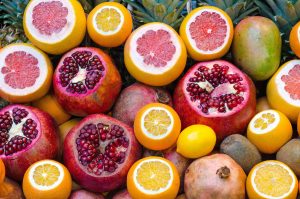Molecular Farming: Synthetic Biology for Nutrient-Rich Ingredients
In recent years, there has been a growing demand for nutrient-rich ingredients in the food and agricultural industries. Consumers are becoming increasingly aware of the importance of a healthy diet and are seeking out products that can provide them with the necessary nutrients to maintain a well-balanced lifestyle. This has led to the emergence of molecular farming or biofarming, a cutting-edge technology that is revolutionizing the way nutrient-rich ingredients are produced. In this article, we will take a deeper look into molecular farming and how synthetic biology is playing a crucial role in its development, paving the way for a new era of sustainable and nutritionally dense ingredients.
The Concept of Molecular Farming
Molecular farming, also known as pharming or biofarming, is the use of genetically modified plants and animals to produce proteins and other useful compounds. The concept may sound similar to traditional biotechnology, but the key difference lies in the production system. In traditional biotechnology, proteins and other compounds are produced through microbial fermentation processes. Molecular farming, on the other hand, involves genetically modified plants and animals as the production platform.
The use of plants and animals as production platforms has a plethora of benefits. First and foremost, it does not involve the use of expensive bioreactors, making it a cost-effective solution. Secondly, it eliminates the risk of contamination by microbial pathogens, which is a common concern in traditional biotechnology. Furthermore, molecular farming is highly flexible, allowing for the production of a wide range of products, including pharmaceuticals, vaccines, and industrial enzymes.
Synthetic Biology and Molecular Farming
The use of synthetic biology in molecular farming has brought about significant advancements in biotechnology. Synthetic biology involves the design and construction of biological systems and organisms for useful purposes. It uses various techniques, including genetic engineering, to manipulate genetic components and create new biological functions. By harnessing the power of synthetic biology, molecular farming has become more efficient, precise, and scalable, bringing about a range of opportunities for the production of nutrient-rich ingredients.
One of the key drivers of the use of synthetic biology in molecular farming is the need for sustainable and environmentally friendly production methods. Conventional methods of producing nutrient-rich ingredients often involve the use of harsh chemicals and intensive farming practices, which can have detrimental effects on the environment. With the use of synthetic biology, it is possible to develop new varieties of plants and animals that are more resilient, disease-resistant, and require fewer resources to grow, leading to more sustainable production practices.
The Potential of Molecular Farming in Food and Agriculture
Improving Nutritional Content
One of the main goals of molecular farming is to produce nutrient-rich ingredients that are not only healthy but also delicious. As mentioned earlier, traditional methods of producing these ingredients may not always be sustainable or have the desired nutritional content. With the use of synthetic biology, it is possible to manipulate the genetic makeup of plants and animals to produce ingredients that are packed with essential vitamins, minerals, and other nutrients.
This is particularly beneficial for regions where nutrient deficiencies are prevalent, as it provides an accessible and cost-effective solution to improve the nutritional content of food. In the long run, this could help tackle problems such as malnutrition and food insecurity, especially in developing countries.
Reducing Food Waste
The production of nutrient-rich ingredients through molecular farming also has the potential to reduce food waste. Currently, a significant amount of food is lost or wasted due to spoilage, inadequate storage, or lack of access to proper transportation. By producing ingredients through molecular farming, which has a longer shelf life and is more durable, it is possible to reduce the amount of food that goes to waste.
This is not only beneficial for the environment but also for food producers and consumers. With reduced food waste, there is less strain on resources and a decrease in production costs, making nutrient-rich ingredients more accessible and affordable for consumers.
The Road Ahead
Molecular farming and synthetic biology have unlocked a world of possibilities for the production of nutrient-rich ingredients. However, like with any technological advancement, it is essential to consider the ethical implications and potential risks. As with any genetically modified organism, there may be concerns about potential health effects and the impact on biodiversity. Therefore, it is crucial to have strict regulations in place to ensure the safe production and use of these ingredients.
Overall, molecular farming and synthetic biology have the potential to transform the food and agriculture industries for the better. By providing a sustainable, efficient, and nutritious production method, it has the power to address some of the world’s most pressing challenges, such as nutrition, food waste, and environmental sustainability. With continued research and development, molecular farming is set to pave the way for a healthier and more sustainable future.








